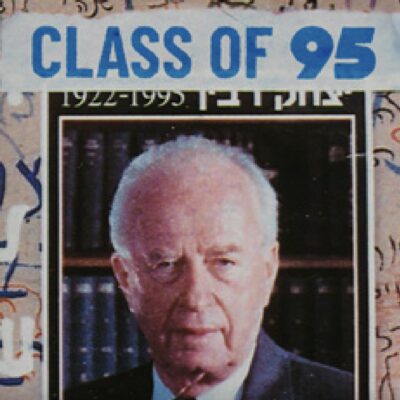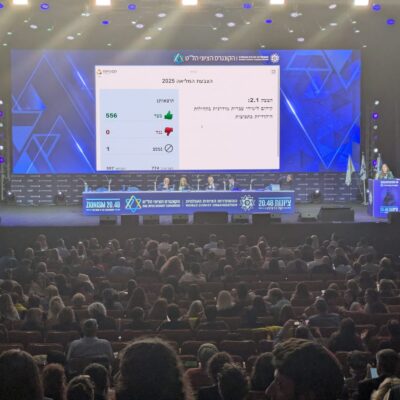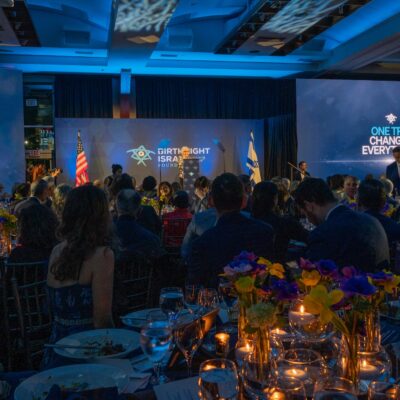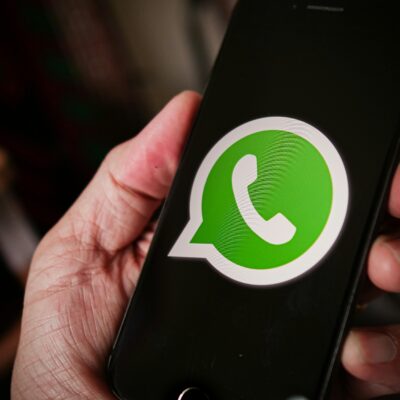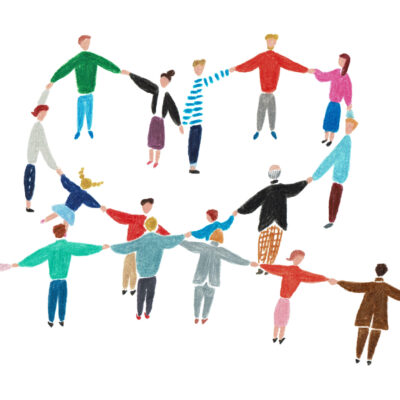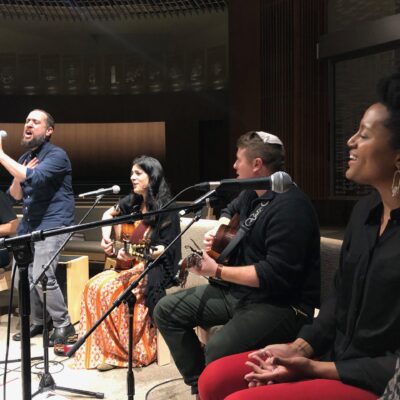Opinion
CONNECTING A COMMUNITY
Who wants to be a Minyanaire: How WhatsApp saved our minyan
In his book Relational Judaism: Using the Power of Relationships to Transform the Jewish Community (Jewish Lights Publishing, 2013), Rabbi Ron Wolfson suggests that the success of Jewish religious institutions depends on their success in fostering the relationships that offer meaning, purpose and the sense of belonging to a community. In his conversations with senior executives in Jewish organizations, building relationships was a common theme. Many leaders felt it was the most important determinant of success in fundraising. Since donors are generous to causes identified with people they trust, Rabbi Wolfson advises: “Begin with the people.”
For many years, each daily Shacharit and Mincha-Maariv service at Congregation B’nai Amoona in suburban St. Louis was led by a volunteer who took weekly responsibility for that service. The congregation’s grassroots “Minyanaires Club,” led by congregant Ronald Heller, z”l, had approximately 100 members who committed to completing the minyan at a time and day that suited their work or personal schedule.
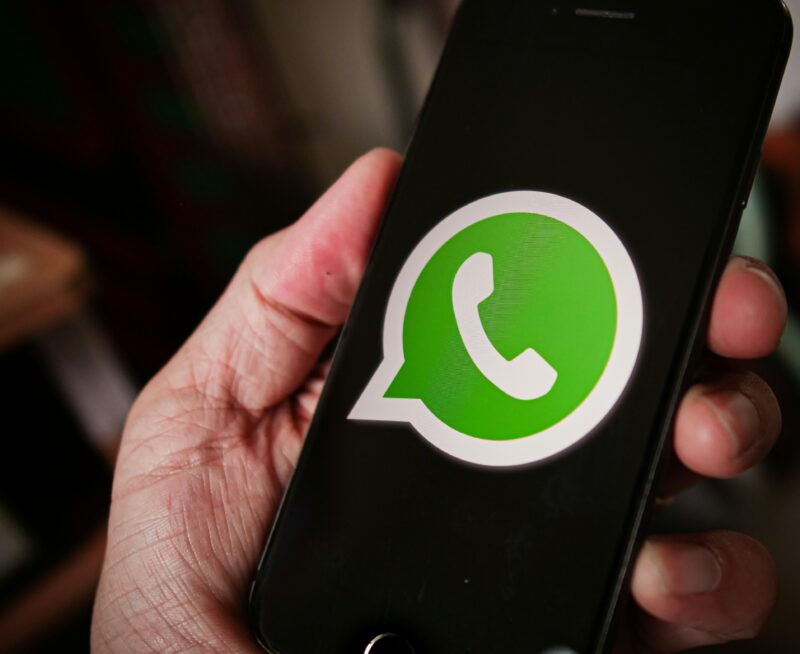
Grant Davies/Unsplash
Unfortunately, as Minyanaires developed medical conditions that prevented regular attendance at minyanim, the previously tight system began to fray. For retirees who spent extended time out-of-town, it was difficult to arrange dependable stand-ins.
The COVID-19 pandemic provided a slight reprieve as congregants attended the daily livestream or Zoom broadcasts from their homes. In this setting, the congregation easily had 10 people virtually attending every minyan. But when the public health emergency receded, the congregation’s building reopened and religious and staff leaders sought to reinvigorate in-person programs. In 2023, it was agreed that only in-person participation would be counted for minyan attendance.
Thereafter, although the Shacharit minyan averaged 11-16 attendees, Mincha-Maariv minyanim were not nearly as successful: Two evenings per week, those minyanim averaged 10 or more participants, but many evenings drew seven participants or fewer. Overall, only 60% of the daily minyanim had at least 10 attendees. Despite their immense value in providing shared Jewish experiences and memories, special events (a two-week congregational trip to Israel, for instance) predictably and repeatedly further challenged minyan attendance.
Looking toward the future, it was clear that the Minyanaire program needed modification if B’nai Amoona was to remain one of the approximately 90 Conservative congregations in the U.S. with daily minyanim.
In mid-June 2025, B’nai Amoona Senior Rabbi Jeffrey Abraham and Assistant Rabbi Jared Skoff proposed that the Minyanaires implement a “Minyan @ B’nai Amoona” group on WhatsApp and launch a campaign to encourage congregants to join.
The rabbis knew that WhatsApp was widely available, free of charge and easy to use and provided secure and private messaging within groups. They felt that using this app could assist in avoiding a common trap of Jewish communal organizations: failing to “invite, engage and appreciate volunteers,” a pitfall was well-described by Rabbi Charles Simon in his book Building a Successful Volunteer Culture: Finding Meaning in Service in the Jewish Community (Jewish Lights Publishing, 2009).
As one of 85 current Minyanaires, I volunteered to champion the effort. With the rabbis’ help, we developed a QR code that directed interested congregants to the enrollment page for the WhatsApp group. We arranged for the QR code to appear on the congregation’s webpage and on the weekly “Shabbos Sheet” for attendees at Shabbat morning services. Volunteers at auxiliary group meetings and other congregational events assisted attendees with downloading WhatsApp and enrolling in the “Minyan @ B’nai Amoona” group.
In less than three months, 75 congregants enrolled. Group members examine notifications often enough that 90% of minyanim have been attended by at least 10 adults. During five of the most recent six weeks, each of the twice-daily minyanim met the required baseline attendance.
Since the inception of the tech-enabled minyan group, congregants have dispensed with cruising the hallways to recruit staff members or congregants accompanying children to lessons. Regardless of their location, without making urgent phone calls, group members are accessing the platform to get volunteers to stand in for them. Additionally, the technology has enabled members of other congregations and out-of-town visitors to join the minyanim.
The new vanguard of Minyanaires have expressed that the new program taps into their desire to help others and give back to their community, feeling gratified to be the “ninth or tenth person” to complete the minyan. There is a general sense that the congregation is stronger and more inclusive.
From a social perspective, Rabbi Abraham noted, “Where we are seeing a decline in synagogue involvement nationwide, here we found a way to utilize simple technology to reinvigorate our minyan community, involve new people and allow them to feel ownership of an important resource for our community.”
“The culture here is to empower our laypeople to show up and make things happen,” Rabbi Skoff observed. “Most synagogues of our size are rabbi-driven or staff-driven or board-driven. I would argue that B’nai Amoona is heavily volunteer-driven, and we’re using new technologies to place the future of our minyan in the hands of our congregants. They are our ‘secret sauce.’”
In the story of the Tower of Babel (Genesis 11:1-9), when the people of Shinar were subjected to obstacles to communication, their ability to work cooperatively toward shared objectives were impeded. They were “disunited” in every possible way.
In contemporary times, the initial experience of our community suggests that providing congregational members with a goal-focused, accessible communication tool can amplify their collective voices. With staff and religious leaders providing a supportive role, participants in a secular community can still unite to maintain a distinctly Jewish mission, honoring the memories of their ancestors and their traditions.
After a long career in software development, Susan Rich has worked in community engagement and Conservative Jewish education, helping congregational leaders provide inclusive, meaningful Jewish experiences and worship services, encourage spiritual growth and strengthen communal bonds.

 Add EJP on Google
Add EJP on Google